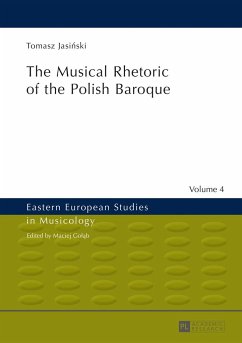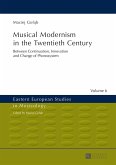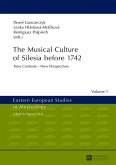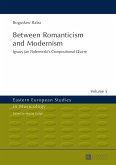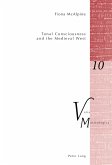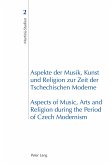This book looks at the rich means of text interpretation in seventeenth and eighteenth century Polish music, a relatively unknown phenomenon. The works of old Polish masters exhibit many ingenious and beautiful solutions in musical oration, which will appeal to wide circles of lovers and experts of old music. One of the fundamental components of baroque musical poetics was music-rhetorical figures, which were the main means of shaping expression - the base and quintessence of musical rhetoric. It was by means of figures that composers built the musical interpretation of a verbal text, developing pictorial, emphatic, onomatopoeic, symbolic, and allegorical structures that rendered emotions and meanings carried by the verbal level of a musical piece.
Bitte wählen Sie Ihr Anliegen aus.
Rechnungen
Retourenschein anfordern
Bestellstatus
Storno

